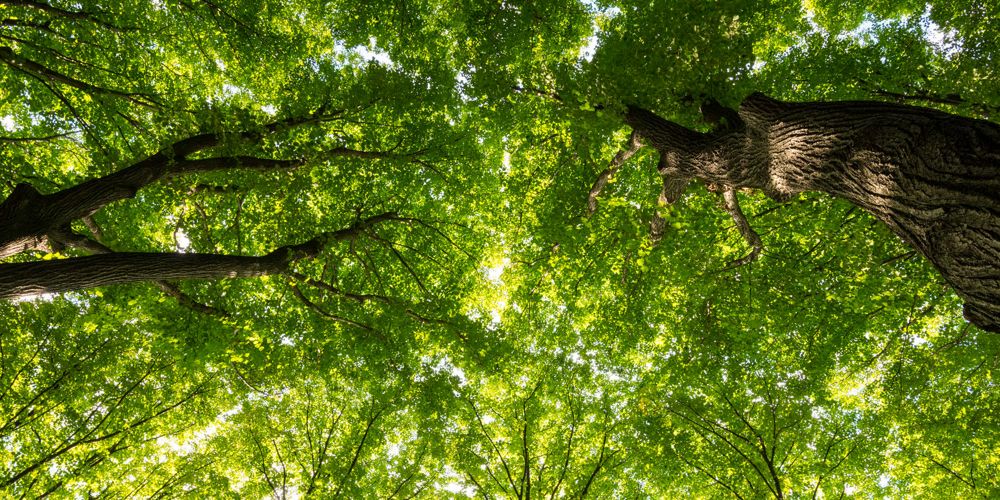Nature-based Solutions
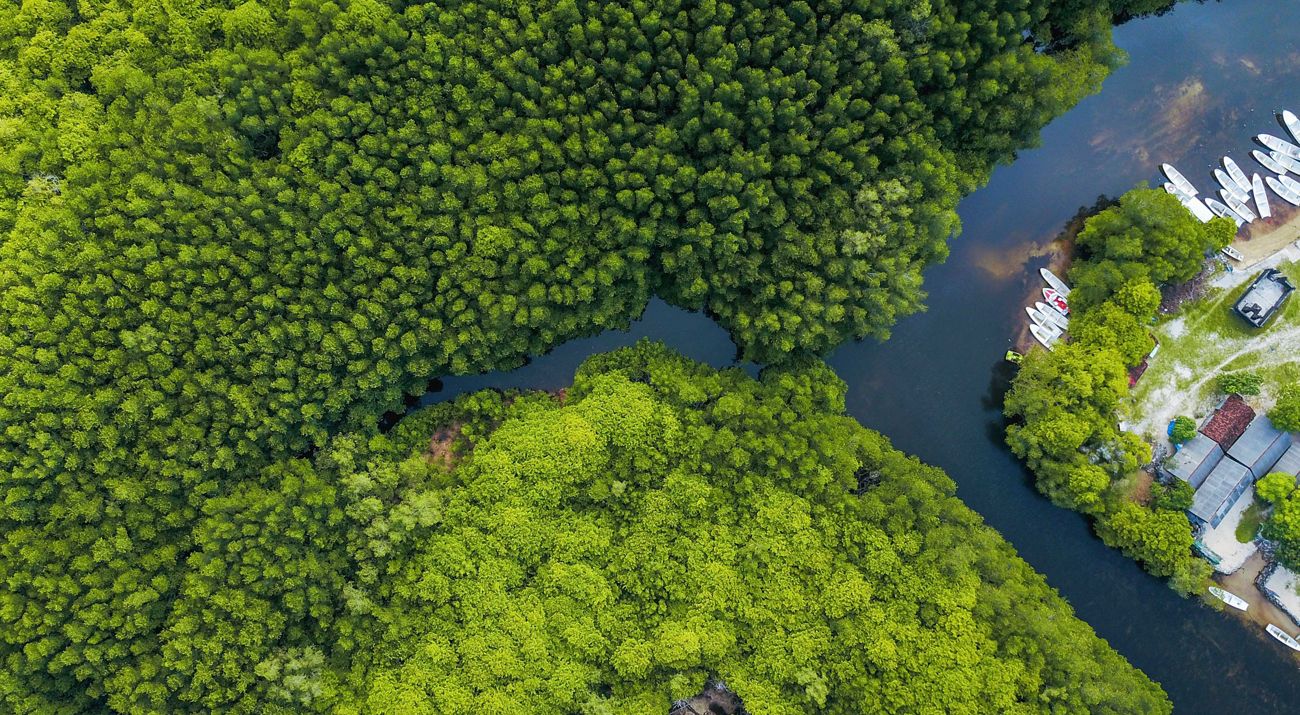
Approach to Worldwide Challenges
The world is facing unprecedented challenges in addressing issues such as climate change, biodiversity conservation, pollution management, and supporting family and community development. To comprehensively address these multiple risks, nature-based solutions (NbS) have gradually become an important approach. Science has confirmed the interconnectedness of different ecosystems, and the international community has called for ambitious, inclusive, and holistic actions, such as the Sustainable Development Goals. Within these actions, protecting nature is a necessary measure to achieve carbon neutrality, manage water resources and other pollutants, enhance climate resilience, and support community and human development goals.
As one of the leading global conservation organizations, The Nature Conservancy (TNC) has been at the forefront of NbS for many years. Collaborating with scientists, community members, businesses, and governments, TNC is dedicated to co-designing and implementing innovative solutions to address issues such as biodiversity loss, freshwater management, air and water pollution, and climate change. These solutions embrace the concept of working with nature to generate significant benefits.
NbS represents a profound shift in thinking within the field of nature conservation, reexamining the relationship between humans and nature from resource utilization to functional considerations. It emphasizes the utilization of important ecosystem services provided by natural ecosystems, such as water retention, soil health improvement, air purification, biodiversity protection, and carbon sequestration, to address the severe threats and challenges of climate change, frequent disasters, and biodiversity loss. At the same time, NbS can bring various economic, environmental, and social benefits, such as reducing infrastructure costs, creating employment opportunities, promoting green economic growth, and improving human health.
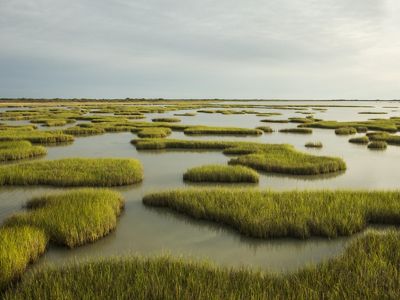
3 Pathways of Nature-based Solutions
To clearly outline the specific implementation approaches and potential of NbS in various fields to address social challenges, it is necessary to categorize the types of NbS. NbS can be classified into 3 types: restoration, management, and protection. Within each type, a range of ecosystem-based approaches can be employed. Restoration types include ecological restoration, forest landscape restoration, and eco-engineering. Management types include integrated coastal zone management and integrated water resources management. Protection types include region-based conservation approaches, such as protected area management.
Below are some details of the mentioned three types:
1. Protection: Maximizing the use of natural or protected ecosystems by minimally or non-invasively safeguarding target ecosystems to maintain or enhance their service functions. For example, protecting mangroves in coastal areas to enhance coastal resilience and address disasters related to extreme weather events. Establishing networks of protected areas and regional conservation approaches to safeguard critical biodiversity hotspots and ecosystems. This can include establishing nature reserves, biodiversity corridors, and ecological networks to ensure long-term protection of biodiversity.
2. Management: Managing ecosystems: Moderately intervening in natural ecosystems and landscapes to enhance ecosystem services. For example, improving the functionality and resilience of agricultural ecosystems and their ability to withstand natural disasters through agroecological landscape design; enhancing the resilience of forest ecosystems to extreme events by increasing tree and genetic diversity; implementing appropriate silvicultural thinning in forests to improve ecological niches and facilitate natural regeneration and succession.
3. Restorations: Restore a degraded or lost ecosystem. This type includes human-made ecosystems, such as green roofs and green walls, which form the basis of urban green infrastructure. Natural infrastructure and green infrastructure utilize the design and management of natural systems to provide specific ecosystem services. For example, using wetlands to filter wastewater and provide water purification functions, or constructing green roofs and urban parks to provide cooling and purification functions in urban spaces, or restoring oyster reefs to protect the coastline from wave and storm surge erosion.
These NbS approaches are not mutually exclusive but can be combined to achieve larger-scale and more comprehensive benefits. For example, wetland restoration can provide not only water resource management functions but also biodiversity conservation and climate change mitigation. Therefore, when designing and implementing NbS, it is important to consider multiple factors, including the demand for ecosystem services, community participation, scientific knowledge, and technical capacity.
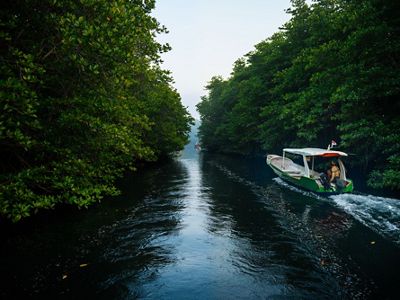
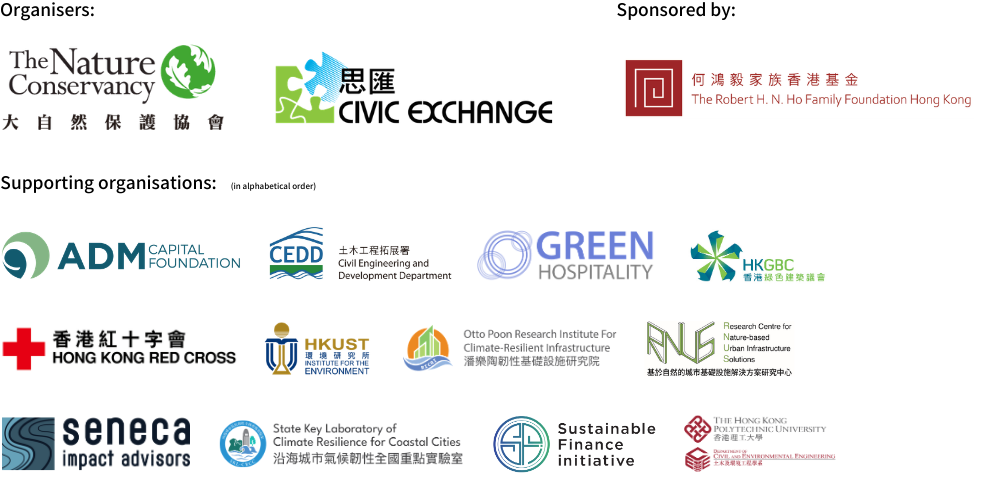
The 2026 Hong Kong International Nature-based Solutions (NbS) Action Week, also known as "Hong Kong Nature-based Solutions Week", organised by The Nature Conservancy (TNC) and Civic Exchange, will be held in Hong Kong from June 1-5, 2026.
Now entering its third consecutive year, Hong Kong NbS Week has established itself as a signature international platform for advancing dialogue and action on NbS for climate resilience and sustainable development. The event brings together policymakers, business leaders, academics, and practitioners from Hong Kong, the Greater Bay Area, and the wider region. The 2026 programme will place a strong emphasis on:
- Implementation of NbS projects in dense urban settings, simultaneously showcasing Hong Kong’s emerging best practices and local cases, while also learning from international NbS experts and exploring opportunities for regional scaling.
- Translating NbS standards and guidelines into on-the-ground action, through integrated land-use planning, climate-resilient infrastructure and conservation project delivery.
- Adopting a whole-of-society approach, and exploring how government, the financial sector, businesses, professional bodies, and civil society can collectively translate policy commitments into investable and scalable on-the-ground action across urban, terrestrial, and coastal environments.
- Supporting the implementation of Hong Kong’s Biodiversity Strategy and Action Plan (BSAP), with a particular focus on mobilising finance and market mechanisms to scale NbS. including sustainable regenerative agriculture and aquaculture, and nature-based tourism.
- Using the Northern Metropolis as a flagship initiative, demonstrating how NbS can be systematically embedded into urban development, works projects, flood management, with regional scale potential.
Participants of this conference will include representatives from the financial sector, business community, professional bodies, academic institutions, environmental organisations, and relevant government departments. The programme will feature international, regional, and local speakers participating in panel discussions and technical sessions focused on landscape planning, policy, finance, and implementation of NbS.
Click to learn more about the NbS Conference and discover how nature‑based solutions can address climate challenges and strengthen urban resilience.
2025
-

Nature-based Solutions for Climate Conference
200 global leaders, academics, policymakers, sustainability experts, and business innovators to explore how NbS can tackle climate challenges and redefine urban resilience. Learn more
2023
-

Nature-based Solutions Forum
A platform for stakeholders to delve into the transformative potential of Nature-Based Solutions (NBS) and their role in climate mitigation and adaptation. Learn more
2025 Nature-based Solutions Report
The Nature Conservancy and Civic Exchange have jointly released a new report titled “Nature-based Solutions in the Northern Metropolis: A Model for 21st-century Cities in Addressing Global Climate.”
DOWNLOAD THE REPORT
-
 Nature-based Solutions in the Northern Metropolis
Nature-based Solutions in the Northern MetropolisA Model for 21st-century Cities in Addressing Global Climate
Download
The 2025 report builds on the momentum of last year’s findings and presents a bold, science-based roadmap for integrating Nature-based Solutions (NbS) into Hong Kong’s climate and development strategies—particularly in the Northern Metropolis.
Drawing from insights shared at the Nature-based Solutions for Climate Conference in January 2025, the report positions the Northern Metropolis as a flagship opportunity to demonstrate how cities can embed nature into infrastructure and planning to build a more resilient, sustainable future.
The report presents strategic recommendations in three key areas: integrating Nature-based Solutions into urban planning, enhancing regional collaboration in the Greater Bay Area, and attracting investment through innovative financing. These aim to position the Northern Metropolis as a leading example of climate-resilient, nature-integrated urban development.
“Nature-based solutions are not just about conservation—they are about building a future where people and nature thrive together,” said Ms. Lulu Zhou, Director of Strategic Partnerships (Asia Pacific) for Climate Resilience at TNC. “This report provides a science-based, actionable framework for Hong Kong to lead the region in climate resilience.”
“As the government updates its Biodiversity Strategy and Action Plan (BSAP) and prepares a new Climate Action Plan, it must embed far greater urgency and ambition—particularly by scaling up Nature-based Solutions. Globally, efforts to reduce emissions are still falling short. Hong Kong has the opportunity to lead by example, showing how a dense urban city can integrate nature into infrastructure, reduce climate risks, and support biodiversity. By prioritising NbS, Hong Kong can drive transformative change and inspire cities around the world to take bold, nature-positive action.” said Ms. Kitty Tam, Lead Author of the report and Programme Lead at Civic Exchange.

DOWNLOAD THE REPORT
-
 Nature-based Solutions in the Northern Metropolis
Nature-based Solutions in the Northern MetropolisA Model for 21st-century Cities in Addressing Global Climate
Download
2024 Nature-based Solutions Report
The Nature Conservancy and Civic Exchange have jointly released a report titled “Unlocking the Potential of Nature in Climate Action – A Report on Hong Kong’s Nature-based Solutions”.
DOWNLOAD THE REPORT
-
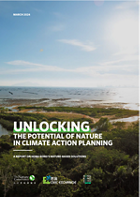 Unlocking the Potential of Nature in Climate Action
Unlocking the Potential of Nature in Climate ActionA Report on Hong Kong’s Nature-based Solutions
Download
The report highlights the interconnection between climate change and biodiversity loss, and explores the transformative potential of Nature-based Solutions (NbS) to help Hong Kong achieve its climate goals. NbS include actions such as conserving, restoring, and effectively managing ecosystems that can remove carbon from the atmosphere and increase coastal resilience, while simultaneously benefiting biodiversity and human well-being. The report serves as a primer for the Hong Kong government, businesses, and civil society, and provides guidance for initiating NbS in Hong Kong.
The report highlights the urgency in adopting NSs – after 2030, potential benefits are likely to decrease because climate change feedback will gradually weaken ecosystems’ resilience, reducing their ability to sequester and store carbon.
NbS also aligns with National Policy. The global agreement on biodiversity, the Kunming-Montreal Global Biodiversity Framework, has established a clear goal to reverse and halt biodiversity loss by 2030, with NbS as a key strategy. China’s recent release of the National Biodiversity Strategy and Action Plan (BSAP) has prioritised the implementation of NbS as a key action, and Hong Kong’s city-level BSAP currently under review, could follow suit.
In the report’s foreword, Mr. Wong Kam Sing, former Secretary for the Environment, expressed his in-principle support to the consideration of NbS, stating, “Hong Kong, including both the public and private sectors, should consider integrating the potential of NbS when updating climate and sustainable development action plans.”
Benefits to the Northern Metropolis
The report utilises the Northern Metropolis (NM) as a case study to illustrate the risks posed by climate change and the opportunities presented by NbS. Most of the NM development is in floodplains, which are particularly susceptible to climate-related risks. Coastal communities in the area frequently suffer significant losses from flooding and severe typhoons, which are expected to worsen with climate change.
Dr. Felix Leung, Climate Change Fellow of TNC, explains, ” Comprehensive planning that fully integrates NbS is crucial for ensuring resilience and protecting biodiversity. With effective management, the establishment of a network of Coastal and Wetland Conservation Parks, as well as reforestation of hillsides is a tremendous opportunity to enhance long-term conservation in the area and increase the resilience of communities facing climate-related risks.”
Kitty Tam, Programme Lead of Civic Exchange, states, “Investing in nature can benefit both biodiversity and development. The Climate Action Plan 2050 has committed around HK$240 billion for climate change efforts over the next 15 to 20 years. Allocating some of this funding towards NbS would be a cost-effective way to reach our climate goals and protect biodiversity”.
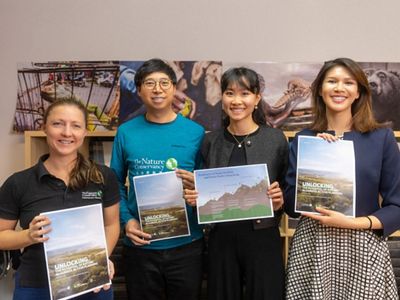
Natural Climate Solutions Resource Centre
In 2017, research led by The Nature Conservancy (TNC) demonstrated that NbS for climate ,natural climate solutions (NCS) have the potential to achieve one-third of the global greenhouse gas emission reductions needed to stabilize our climate. Since then, TNC scientists and partners have continued investigating how, when and where to invest in NbS to deliver on the world's most urgent climate goals.
TNC's Natural Climate Solutions Resource Center showcases some of the best examples of NbS for climate implementation worldwide, according to four featured biomes: forests, croplands, grasslands and wetlands. These case studies are intended to support a variety of stakeholders, including governments, community leaders, land managers, companies and investors.
We have years—not decades—to address the interconnected crises of climate change and biodiversity loss. Please support TNC in addressing the climate crisis with NbS.
Related Articles

Finding Solutions in Nature
New research by TNC and 15 other institutions demonstrates that Natural Climate Solutions can provide up to 37 percent of the emissions reductions needed by 2030 to keep global temperature rise under 2 degrees Celsius.

Discover Beautiful Wildlife and Nature in Hong Kong
Check out some of the beautiful wildlife and scenery that Hong Kong has to offer.
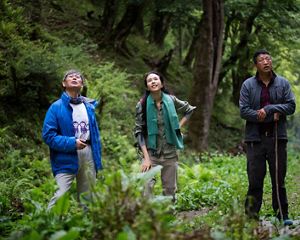
Catch a glimpse of Yunnan Golden Monkeys with Karen Mok
We are honored to have invited our Celebrity Ambassador Ms. Karen Mok to visit both of our Yunnan Golden Monkey and tree planting conservation sites in Yunnan, China.
